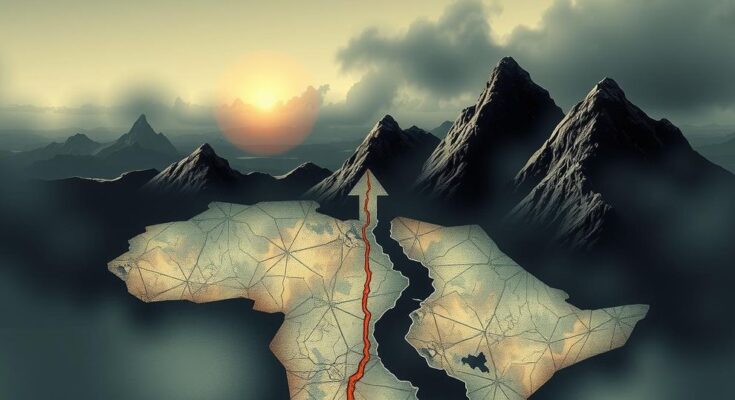M23 rebels have declared their intention to march to Kinshasa, following their capture of Goma. Congolese President Tshisekedi has vowed military action against the rebels amidst heightened humanitarian crises. Rwanda’s alleged support for M23 raises international concerns regarding the country’s involvement in the conflict over mineral resource access. Calls for diplomatic engagement are increasing as the situation remains volatile.
The M23 armed group, supported by Rwanda, announced its intention to advance to Kinshasa, the capital of the Democratic Republic of Congo (DRC). Their recent seizure of Goma, the capital of North Kivu province, represents a significant escalation in ongoing regional conflicts involving various armed factions. M23 leader Corneille Nangaa publicly stated their commitment to liberation and emphasized plans to restore electricity and implement humanitarian support for displaced populations. This development follows an address by Congolese President Felix Tshisekedi, who vowed to counter M23’s actions with a robust military response.
Amid worsening humanitarian conditions, the DRC populace faces dire shortages and dislocation, with half a million people displaced this month alone. Observers noted the presence of Rwandan forces alongside M23 fighters, raising international concern over potential profiteering from the region’s rich mineral resources. Rwanda claims its primary aim is the elimination of armed groups linked to the 1994 genocide while denying accusations of military involvement in DRC. Furthermore, regional diplomacy is strained, as President Tshisekedi declined to engage in talks with his Rwandan counterpart, creating uncertainty over conflict resolution efforts. The situation remains volatile, with renewed calls for international intervention and mediation.
The ongoing conflict in the eastern DRC has deep historical roots, primarily linked to ethnic tensions and the legacy of the 1994 Rwandan genocide. Various armed groups, including M23, have emerged, seeking control over mineral-rich territories that are crucial for global electronics and luxury goods. Rwanda’s involvement has been characterized by accusations of military aggression aimed at securing resource wealth while maintaining security against threats posed by rebel groups within DRC. Recent developments indicate a continuing deteriorating humanitarian crisis, exacerbated by military engagements and the displacement of civilians.
The commitment of M23 to advance towards Kinshasa signifies an escalation in the armed conflict in the DRC, which poses severe humanitarian challenges. With President Tshisekedi asserting a military response and increasing international calls for mediation, the situation remains precarious. Observers express concern over Rwanda’s intentions in the region amidst claims of resource exploitation. The future of the DRC hinges on effective diplomatic solutions and a sustained commitment to restoring peace and stability.
Original Source: www.rfi.fr




